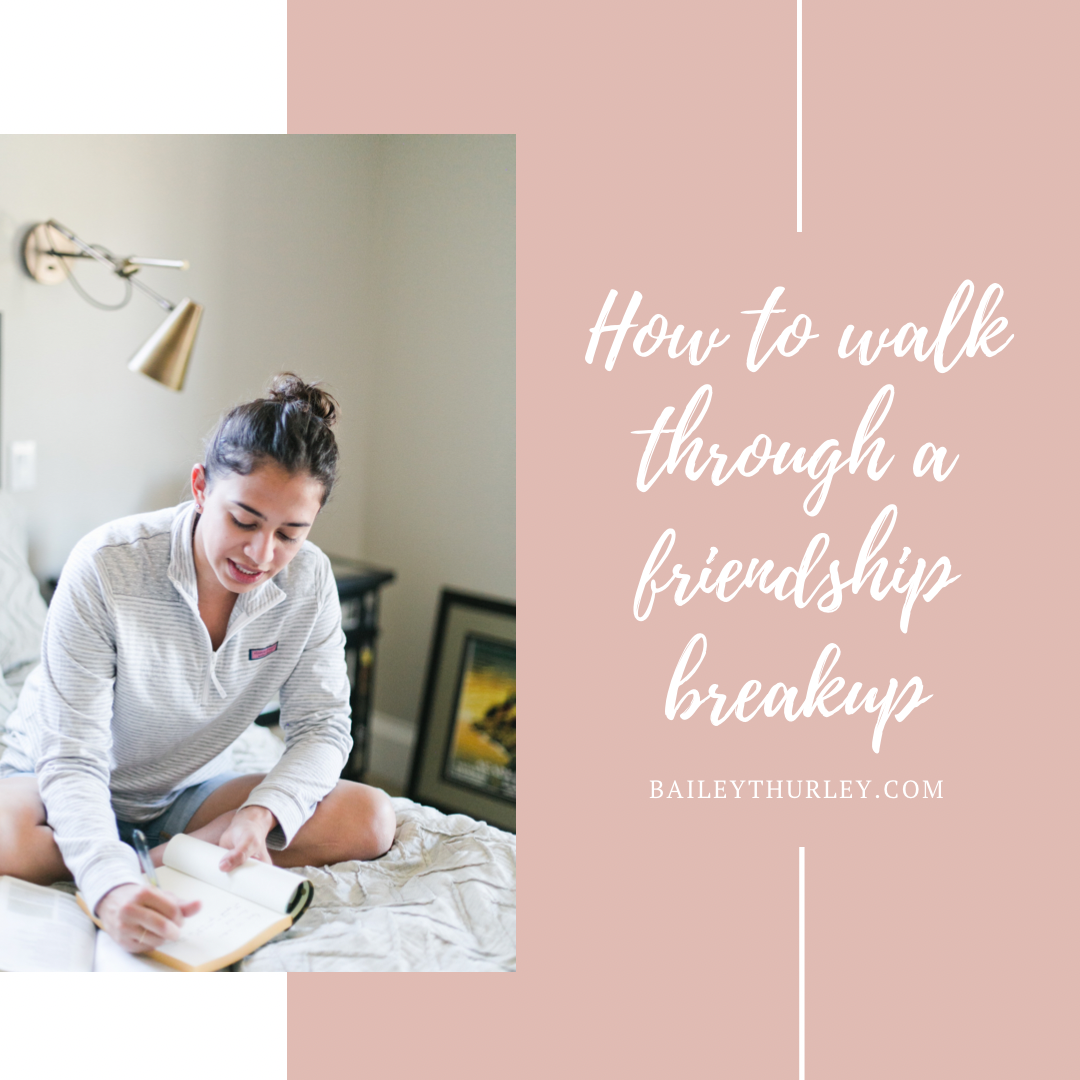Don’t allow a friendship breakup to catch you off guard. Instead of being surprised—let’s be prepared.
Two imperfect people in a relationship breeds conflict and sometimes it gets so big you can’t come back from it. Sometimes boundaries are crossed, and you have to choose to protect your heart or draw clear lines to create a healthier friendship. Having walked through my own friendship breakups, there is so much I want to tell your hurting heart. I want you to know you are not a failure. I want you to know you are loved the way you are. I also want you to know it is healthy to mourn losing a friend no matter the circumstance.
But for those looking for a few concrete steps, here are my best practices for walking through a friendship breakup.
Communicate
Talk face to face as soon as you can. Don’t leave things unclear. You may need to process but it needs to have a time restriction. Without it your friend sits in the vague space that only leads to anxious hurt feelings. We’ve all experienced the pain and confusion of silence. So, don’t put someone else through it. False assumptions are built up in the silence and it honestly makes the friendship harder to restore than working through the original point of conflict.
I had said some hurtful things to a friend and asked if we could get together in the next couple of days to talk through it and give me the opportunity to apologize in person. Instead, she said she needed time…and then I didn’t hear from her for five months. We did finally meet in person after those five months, and I had the opportunity to apologize for the things I said but she never apologized for leaving me in limbo for so long. This friendship didn’t survive.
Don’t let this happen to a friendship that could recover from a pain point. Instead try:
“I need two days to process bunt I will call you Friday morning at 9:30am.
 Be clear that you will come back to this conversation but also a bit of time gives each of you the opportunity to process, write some things down and winddown from the emotions that are bubbling up inside.
Be clear that you will come back to this conversation but also a bit of time gives each of you the opportunity to process, write some things down and winddown from the emotions that are bubbling up inside.
Reconciling whether the friendship continues or not.
Listen, confess, apologize, forgive. Not because you have to fake your friendship and forget what has happened but because this is your sister in Christ.
Read that last sentence again.
She is in the family of God and you may run into this person at church, in a small group setting, or at a baby shower for mutual friends. You need to have found peace in this situation. (Note: this could also leave doors open to pick up the friendship in the future).
So what does this really look like: You are responsible for confessing and apologizing you are not responsible for their response. It may be weeks, months or years for healing to take place and a friend to apologize for their side of the conflict. Or you may never talk again. Doing the right thing by approaching the conversation with humility and grace may be the ONLY thing you can control in the conflict. The rest is up to your friend. Bless and release if she can’t move on from the conflict.
Jesus never begged anyone into relationship with him. He extended the invitation, told people what He was all about (a.k.a the Truth) and allowed others to make the decision to follow him or not. You don’t need to beg your friends to be friends with you. Invite them in, tell them what you are all about and then leave the rest up to them.
We shouldn’t chase after people God has not assigned us to.
Why we forgive in a friendship breakup:
We offer forgiveness because God has forgiven us from our sins against him. His mercy and love compels us to show kindness to others. These conversations are messy, it’s okay to be nervous and scared. Communicate that—be honest about how hard it was to have the conversation. PRAY for humility and love and that you both come to a healthy closure.
What does growth from the friendship breakup look like?
The pain won’t disappear right away. God has surprised me in a variety of friendship breakups. Ones that I thought would recover quickly, ended. And others that I assumed were never going to find reconciliation, would send an apology text months later clearing the air. Yet, we know that God uses even our painful experiences to mature us (read James 1:2-4).
When we get to the point of health where we can look back and recognize how the situation drew us closer to God then we will see how God has used it for everyone’s growth.
We will make mistakes, but this doesn’t mean you are a mistake.
My final reminder that can cover most any friend situation is: treat people the way we want to be treated. Keep this in mind always and you will find the confidence to approach your friend and treat them with kindness as you work through your conflict.





